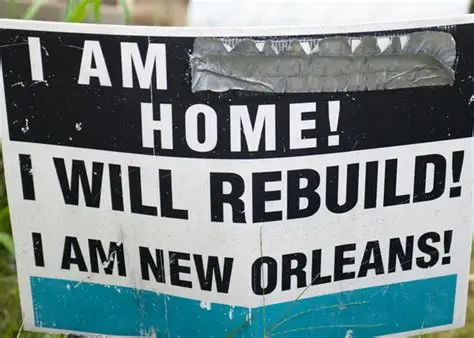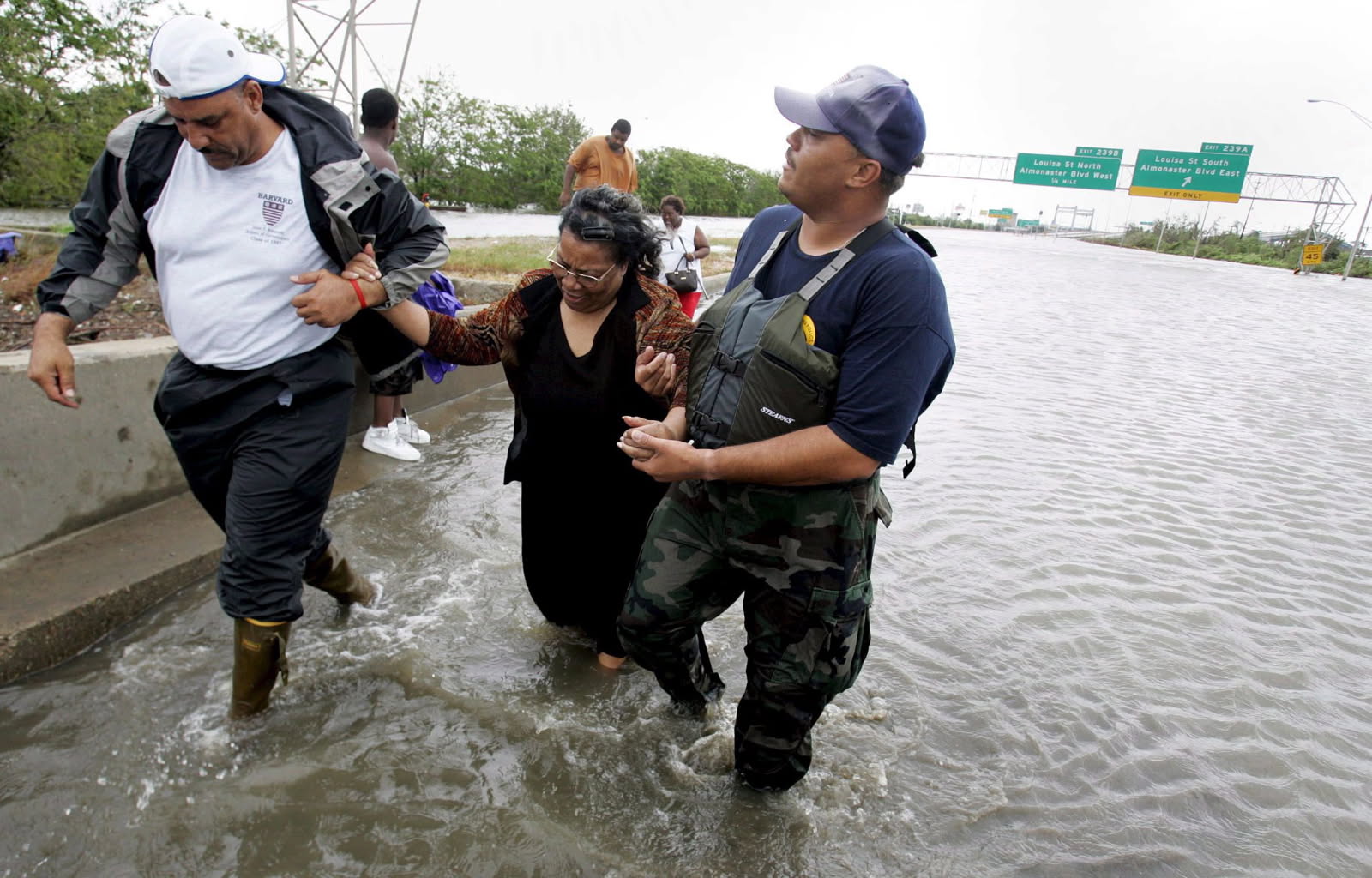When Hurricane Katrina struck New Orleans in August 2005, the world saw heartbreaking images. A drowned city. Families waving sheets from rooftops. Elderly residents trapped in sweltering attics. The levees had failed, and the flood consumed not just homes but also the city’s sense of safety. In that chaos, thousands were abandoned by government at every level. But two men refused to leave. They stayed, they fought, and they saved lives.
Their names were Oliver Thomas and Eddie Compass.
Oliver Thomas: A Councilman in the Boat
While many officials evacuated, City Council President Oliver Thomas chose to remain. Instead of sitting in an office, Thomas climbed into boats and plunged into the drowned neighborhoods. He saw firsthand what the rest of the country would only glimpse through news cameras: people clinging to beams under interstate ramps, bodies drifting in canals, and desperate residents banging from attics.
Thomas used his voice to demand attention and his presence to give hope. “This ain’t gonna last,” he told a guard on the day the levees broke. He knew immediately the city was in for its greatest test. Later, as anger swelled, he declared that New Orleanians deserved not 90 percent recovery, not 95 percent, but “one hundred percent whole.”
He wasn’t delivering slogans from safety. He was out there in the water, pointing rescuers toward stranded neighbors, insisting that the people who stayed behind were worth fighting for. His courage gave structure to chaos.
Eddie Compass: The Chief Who Commandeered Boats
Then there was Police Superintendent Eddie Compass. His department was drowning—literally. Precincts were under water. Radios barely worked. Officers were stranded with their own families in crisis. Yet Compass made a decision that turned panic into purpose.
“We had to think on our feet,” he later recalled. “There was no blueprint… and I knew one thing: human life was paramount.” With no playbook, he commandeered local boats. Once the waters rose above street signs, landmarks disappeared. Compass understood the danger: submerged houses could flip or sink boats. So he used his radio to guide his officers across an invisible city, directing them to survivors while steering them away from hidden debris.
“This is something no one had ever handled before,” he said. And yet he handled it. His decisions turned police radios into lifelines and saved people who otherwise had no chance.

Why Their Work Mattered
The official death toll of Katrina has been revised to about 1,392, though for years the number stood closer to 1,800. Even one loss is too many. But because of the relentless work of men like Thomas and Compass, scores of New Orleanians lived to tell their story.
They were not perfect men, and they faced struggles head on. But in those days of catastrophe, they embodied a kind of leadership rare in politics or policing. They showed up. They stayed. And they put the people of this city above everything else.
Related: Katrina 20 Years Later
The Lesson for Today
Nearly twenty years later, New Orleans still faces storms—some meteorological, others political, social, or economic. Again and again, we are reminded that true leadership is not found in polished speeches or press conferences. It is measured by presence, sacrifice, and courage.
When disaster struck, Oliver Thomas did not hide. Eddie Compass did not surrender. They proved that in the darkest hours, leadership means getting in the boat and refusing to leave until everyone is safe.
Closing Thought
The water tried to erase New Orleans in 2005. These two men fought to keep the city alive. We remember them not for their titles, but for their actions. In a time when too many leaders talk about loyalty but vanish when it counts, the bravery of Oliver Thomas and Eddie Compass still lights the way.
New Orleans will never forget the storm. But neither should it forget the heroes who stayed behind to save its soul.


Why do you only recognize the black people? Lots of white people helped. Your racism is extremely bad